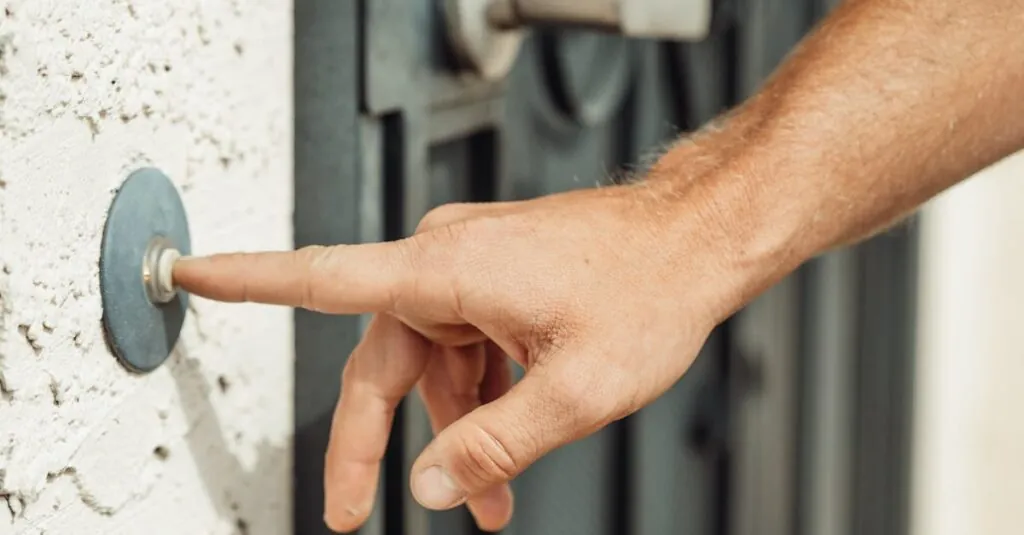Table of Contents
ToggleBuilding habits can feel like trying to juggle flaming torches while riding a unicycle—exciting but a little too risky for comfort. Many dive headfirst into new routines, only to find themselves crashing and burning faster than they can say “self-discipline.” But what if there’s a way to cultivate those habits without the stress and exhaustion? Spoiler alert: there is!
Understanding Habit Building
Building habits requires awareness of both psychological principles and physical well-being. Striking a balance between aspiration and sustainability fosters success.
The Science of Habits
Understanding habits involves recognizing the cues, routines, and rewards that shape behaviors. Researchers, such as those from Duke University, found that about 40% of daily actions occur unconsciously. This automaticity makes habits powerful for productivity and efficiency. The brain’s basal ganglia play a key role in habit formation, storing the learned sequences. Effective strategies, like the 21/90 rule—21 days to form a habit and 90 days to make it a permanent lifestyle—can aid individuals in creating lasting changes.
The Importance of Sustainable Habits
Sustainable habits lead to long-term success without overwhelming stress. Individuals who adopt manageable tasks gradually experience less burnout and higher motivation levels. A study published in the Journal of Behavioral Medicine highlights that gradual changes in diet and exercise yield better results than drastic shifts. Creating habits that fit personal lifestyles fosters resilience. Finding enjoyment in new routines increases commitment and overall satisfaction, ensuring that these habits become integral to daily life.
Identifying Burnout Triggers
Identifying triggers for burnout allows individuals to address issues proactively. Awareness of these factors plays a crucial role in sustaining habit formation.
Common Signs of Burnout
Signs of burnout often manifest as physical and emotional exhaustion. Frequent feelings of fatigue throughout the day indicate a problem. Noticeable irritability or mood swings suggest stress overload. A loss of interest in activities typically enjoyed points to deeper fatigue. Difficulty concentrating on tasks can hinder productivity. Reduced performance efficiency in daily responsibilities often accompanies these symptoms. Recognizing these signs early can prevent the escalation of burnout.
Analyzing Lifestyle Factors
Assessing lifestyle factors helps in pinpointing burnout triggers. Sleep patterns play a vital role in overall well-being. Insufficient rest can lead to fatigue and irritability. Diet choices significantly impact energy levels. Consuming high-sugar or processed foods often leads to energy crashes. Regular physical activity contributes positively to mental health. Balancing work and leisure is essential for maintaining motivation. Identifying these elements allows individuals to modify routines effectively and build sustainable habits.
Strategies for Habit Building Without Burnout
Building habits can feel overwhelming, but implementing effective strategies makes the journey manageable. Here are key tactics for successful habit formation without burnout.
Starting Small and Gradual Changes
Small actions create a foundation for lasting habits. Initiating change with manageable tasks fosters a sense of accomplishment. For example, starting with just 10 minutes of exercise daily increases the likelihood of consistency. Gradual changes reduce feelings of stress, making the transition smoother. Focusing on one habit at a time allows individuals to adapt and integrate it into their routines. As progress becomes evident, motivation grows, encouraging further development in habit formation.
Incorporating Enjoyable Activities
Enjoyment is a powerful motivator in habit building. Engaging in activities that bring pleasure increases the likelihood of maintaining those habits. It’s essential to choose exercises, hobbies, or practices that resonate personally. For instance, turning workouts into a dance party or organizing a book club can make the process enjoyable. When individuals associate positive feelings with their routines, adherence becomes easier. Finding joy in these activities decreases the risk of burnout and encourages consistency, transforming habits into cherished parts of daily life.
Setting Realistic Goals and Expectations
Realistic goals provide a clear path for habit development. Setting achievable targets encourages individuals to strive without feeling overwhelmed. For instance, aiming to read one book a month is more manageable than committing to a book every week. Break larger goals into smaller milestones to track progress easily. Recognizing that setbacks are normal helps maintain motivation over time. When individuals set goals that reflect their current capacities, they experience a greater sense of control and success in building enduring habits.
Building a Support System
A supportive environment enhances habit formation, creating a network that fosters motivation and accountability. Individuals can strengthen their commitment through connection.
Finding Accountability Partners
Choosing accountability partners plays a vital role in sustaining habits. Friends or family members can motivate through encouragement and shared experiences. Sharing progress allows for celebrating achievements together, which reinforces positive behavior. Engaging in regular check-ins helps maintain focus on goals. Collaborative challenges, such as a fitness competition, can increase excitement and motivation. Mutual accountability leads to higher success rates, as individuals feel responsible not only for themselves but also for their partners.
Engaging with Community Resources
Leveraging community resources offers valuable support in habit-building journeys. Local groups, clubs, or online forums provide opportunities to connect with like-minded individuals. Engaging in group activities, such as classes or workshops, fosters a sense of belonging and shared purpose. Communities often provide access to expert advice and resources, which can simplify the process of forming new habits. Utilizing these resources builds social connections and enhances motivation through shared challenges and successes. Community support creates a collaborative environment that promotes sustained habit development.
Building habits without burnout is not only possible but essential for long-term success. By understanding the psychological and physical aspects of habit formation individuals can create sustainable routines that enhance their lives. Starting small and focusing on enjoyable activities makes the journey more manageable while fostering resilience.
Awareness of burnout triggers and lifestyle factors can significantly impact motivation and adherence. Creating a supportive environment through accountability partners and community resources strengthens commitment and reinforces positive behaviors. Ultimately embracing a gradual approach to habit building paves the way for a healthier and more fulfilling lifestyle.







